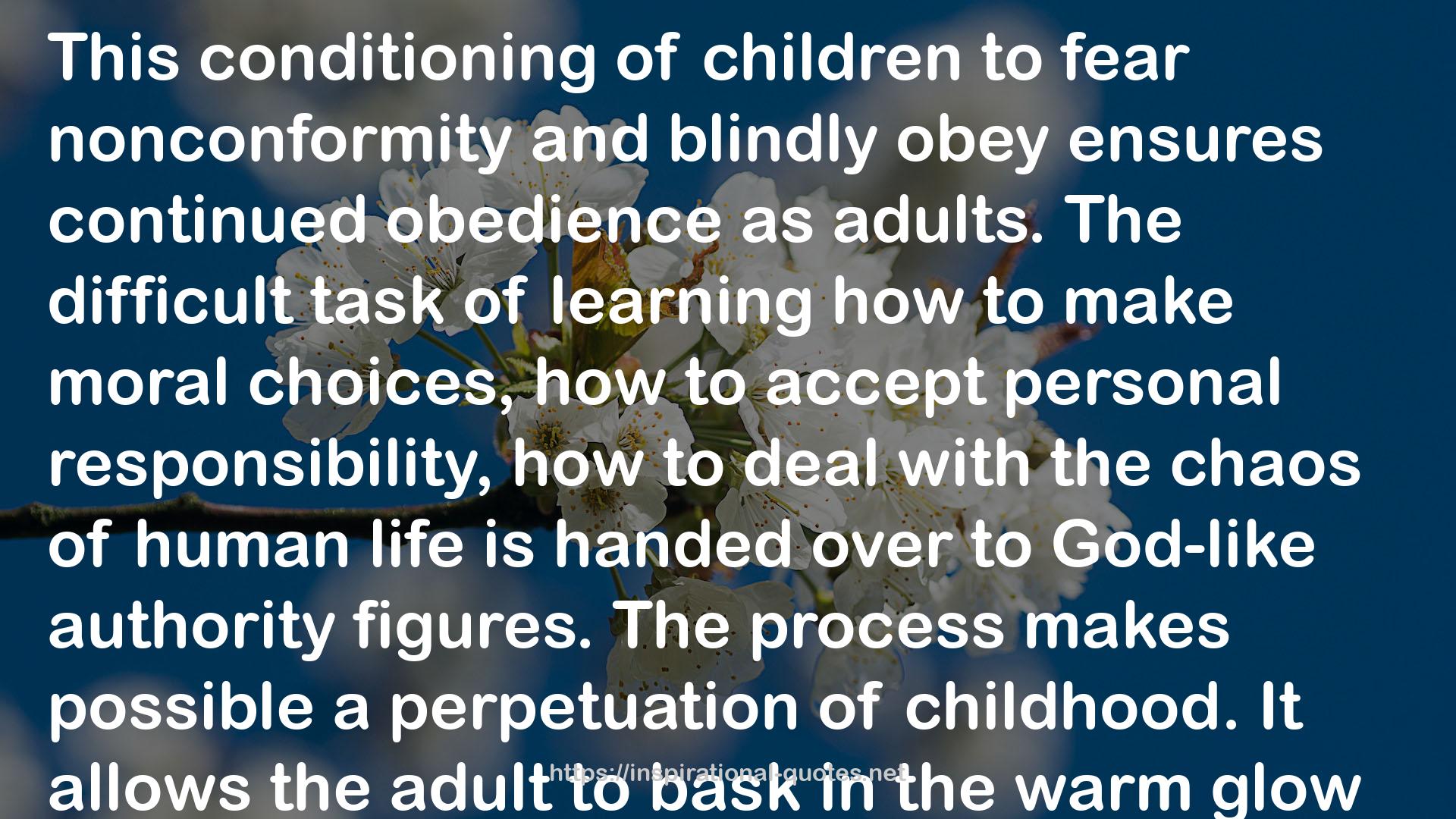" This conditioning of children to fear nonconformity and blindly obey ensures continued obedience as adults. The difficult task of learning how to make moral choices, how to accept personal responsibility, how to deal with the chaos of human life is handed over to God-like authority figures. The process makes possible a perpetuation of childhood. It allows the adult to bask in the warm glow and magic of divine protection. It masks from them and from others the array of human weaknesses, including our deepest dreads, our fear of irrelevance and death, our vulnerability and uncertainty. It also makes it difficult, if not impossible, to build mature, loving relationships, for the believer is told it is all about them, about their needs, their desires, and above all, their protection and advancement. Relationships, even within families, splinter and fracture. Those who adopt the belief system, who find in the dictates of the church and its male leaders a binary world of right and wrong, build an exclusive and intolerant comradeship that subtly or overtly shuns and condemns the “unsaved.” People are no longer judged by their intrinsic qualities, by their actions or capacity for self-sacrifice and compassion, but by the rigidity of their obedience. This defines the good and the bad, the Christian and the infidel. And this obedience is a blunt and effective weapon against the possibility of a love that could overpower the dictates of the hierarchy. In many ways it is love the leaders fear most, for it is love that unleashes passions and bonds that defy the carefully constructed edifices that keep followers trapped and enclosed. And while they speak often about love, as they do about family, it is the cohesive bonds created by family and love they war against. "
― Chris Hedges , American Fascists: The Christian Right and the War on America
